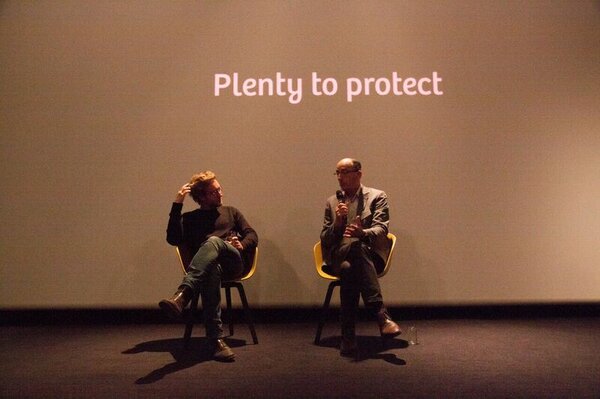Machine Smarts and Human Values: designing a humanistic future
- Datum:
- 14 October
- Tijd:
- 00:00
- Locatie:
- Zwarte Doos, TU/e campus
Machine Smarts and Human Values: designing a humanistic future

Plenty to protect under pressures of technology
We are handing more and more tasks to technology. But how do we ensure that this technological growth also contributes to the prosperity and well-being for us as a society? This central question was discussed during the Symposium Machine Smarts and Human Values: designing a humanistic future organized by the TU/e Center for Humans and Technology in cooperation with the 4TU federation.
We all use technology, even when we do not fully comprehend its workings. We use it for entertainment (Netflix) or to find the way to our next appointment (9292.nl). But also without us knowing, technology and data are used to influence our environment, for example, through targeted internet ads or the automatic detection of insurance fraud.
Because this technology is increasingly intertwining with our lives, professor Wijnand IJsselsteijn (scientific director of the Center for Humans and Technology) stated that it is important to become aware of the impact of these developments on society and humans.
The symposium of 14 October 2016 offered lectures by, amongst others, professor Anthonie Meijers, who spoke of the "homo novus" - the new human being. This is a human being changed or affected by technologies such as gene modification, nanotechnology, and artificial intelligence.
The concept of Homo Novus raises various questions. Meijers asked the audience to vote: "Should the next president of America be obliged to undergo genetic modification to become smarter?". Many voted Yes. "Would you like to have your children undergo such a modification?" This raised less enthusiastic responses.
Meijer's examples clearly illustrated that when the boundaries between humans and technology fade, ethical questions about autonomy, control, integrity of the body and privacy of our lives become increasingly urgent. Maurits Martijn, research journalist and writer of the book 'You Do Have Something To Hide', underlined this.
Privacy paradox
Martijn spoke of the privacy paradox: how we say that we find privacy important, but in reality are not willing to ‘pay’ for it. The common sense argument 'I have nothing to hide' is disastrous when we want to safeguard our privacy from criminal hackers, manipulative companies, or an overbearing government. The big challenge, shown at the symposium, is to take into account fundamental human values during the design process.
The symposium 'Machine Smarts and Human Values' was the first public event of the Center for Humans and Technology. This institute aims to intensify the relationship between the social sciences and the engineer.
In developing technology, we need to raise awareness of the social consequences and the responsibilities of the engineer in areas such as privacy and enhancement of wellbeing. We aim to extend the importance of this social perspective of technology within TU/e, but also beyond - towards government and industry - stated IJsselsteijn.
Source: cursor.tue.nl